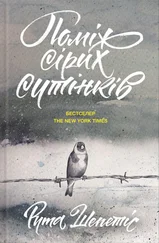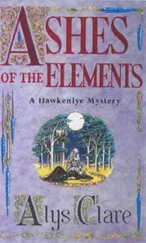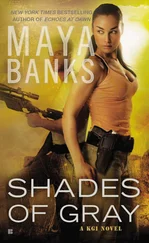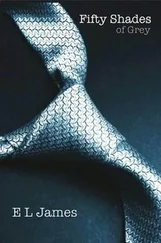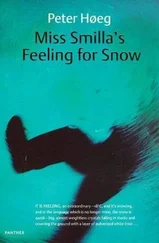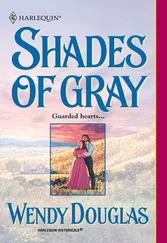I put on my sandals and grabbed two books, hair ribbons and my hairbrush. Where was my sketchbook? I took the writing tablet, the case of pens and pencils and the bundle of rubles off my desk and placed them amongst the heap of items we had thrown into my case. I snapped the latches closed and rushed out of the room, the curtains blowing, flapping over the loaf of fresh bread still sitting on my desk.
~
I saw my reflection in the glass door of the bakery and paused a moment. I had a dab of green paint on my chin. I scraped it off and pushed on the door. A bell tinkled overhead. The shop was warm and smelled of yeast.
“Lina, so good to see you.” The woman rushed to the counter to assist me. “What may I help you with?”
Did I know her? “I’m sorry, I don’t—”
“My husband is a professor at the university. He works for your father,” she said. “I’ve seen you in town with your parents.”
I nodded. “My mother asked me to pick up a loaf of bread,” I said.
“Of course,” said the woman, scurrying behind the counter. She wrapped a plump loaf in brown paper and handed it over to me. When I held out the money, she shook her head.
“Please,” whispered the woman. “We could never repay you as it is.”
“I don’t understand.” I reached toward her with the coins. She ignored me.
The bell jingled. Someone entered the shop. “Give your parents our very best regards,” said the woman, moving to assist the other customer.
Later that night I asked Papa about the bread.
“That was very kind of her, but unnecessary,” he said.
“But what did you do?” I asked him.
“Nothing, Lina. Have you finished your homework?”
“But you must have done something to deserve free bread,” I pressed.
“I don’t deserve anything. You stand for what is right, Lina, without the expectation of gratitude or reward. Now, off to your homework.”
MOTHER PACKED AN EQUALLY large suitcase for Jonas. It dwarfed his small, thin frame and he had to carry it with both hands, bending backward to lift it off the floor. He didn’t complain of the weight or ask for help.
The sound of breaking glass and china wailed through the house in quick intervals. We found our mother in the dining room, smashing all of her best crystal and china on the floor. Her face glistened with sweat, and her golden ringlets fell loose over her eyes.
“Mama, no!” cried Jonas, running toward the broken shards that littered the floor.
I pulled him back before he could touch the glass. “Mother, why are you breaking your beautiful things?” I asked.
She stopped and stared at the china cup in her hand. “Because I love them so much.” She threw the cup to the floor, not even pausing to see it break before reaching for another.
Jonas began to cry.
“Don’t cry, darling. We’ll get much nicer things.”
The door burst open and three NKVD officers entered our house carrying rifles with bayonets. “What happened here?” demanded a tall officer, surveying the damage.
“It was an accident,” Mother replied calmly.
“You have destroyed Soviet property,” he bellowed.
Jonas pulled his suitcase close, fearful that any minute it, too, might become Soviet property.
Mother looked in the foyer mirror to affix her loose curls and put on her hat. The NKVD officer slammed her in the shoulder with the butt of his rifle, throwing her face-first into the mirror. “Bourgeois pigs, always wasting time. You won’t need that hat,” he scoffed.
Mother righted and steadied herself, smoothing her skirt and adjusting her hat. “Pardon me,” she said flatly to the officer before fixing her curls again and sliding her pearl hatpin into place.
Pardon me ? Is that really what she said? These men burst into our home at night, slam her into the mirror—and she asks them to pardon her ? Then she reached for it, the long gray coat, and suddenly I understood. She was playing the Soviet officers like a careful hand of cards, not quite sure what might be dealt next. I saw her in my mind, sewing jewelry, papers, silver, and other valuables into the coat under the lining.
“I have to use the bathroom,” I announced, trying to divert the attention from my mother and the coat.
“You have thirty seconds.”
I shut the bathroom door and caught sight of my face in the mirror. I had no idea how quickly it was to change, to fade. If I had, I would have stared at my reflection, memorizing it. It was the last time I would look into a real mirror for more than a decade.
THE STREETLAMPS HAD been turned off. It was nearly black in the road. The officers marched behind us, forcing us to keep pace with them. I saw Mrs. Raskunas peer out of her curtains. The moment she saw me looking, she disappeared. Mother nudged at my arm, which meant that I should keep my head down. Jonas was having a hard time carrying his suitcase. It was banging against his shins.
“Davai!” commanded an officer. Hurry, always hurry.
We marched into the intersection of the street, toward a large dark object. It was a truck, surrounded by more NKVD. As we approached the rear of the vehicle, I saw people sitting inside on their luggage.
“Boost me up before they do,” Mother whispered quickly, not wanting an officer to touch her coat. I did as she asked. The officers pushed Jonas up. He fell on his face, his luggage thrown on top of him. I made it without falling, but when I stood up, a woman looked at me and clasped her hand to her mouth.
“Lina, dear. Button your coat,” instructed Mother. I looked down and saw my flowered nightgown. In the rush and search for my sketchbook, I had forgotten to change. I also saw a tall, wiry woman with a pointy nose looking at Jonas. Miss Grybas. She was a spinster teacher from school, one of the strict ones. I recognized a few others: the librarian, the owner of a nearby hotel, and several men I had seen Papa speaking with on the street.
We were all on the list. I didn’t know what the list was, only that we were on it. Apparently so were the other fifteen people sitting with us. The back gate of the truck slammed shut. A low moan came from a bald man in front of me.
“We’re all going to die,” he said slowly. “We will surely die.”
“Nonsense!” said Mother quickly.
“But we will,” he insisted. “This is the end.”
The truck began to move, jerking forward quickly, throwing people off their seats. The bald man suddenly scrambled up, climbed the inside wall of the truck, and jumped out. He smashed onto the pavement, letting out a roar of pain like an animal caught in a trap. People in the truck screamed. The tires screeched to a halt and the officers leapt out. They opened the back gate, and I saw the man writhing in pain on the ground. They lifted him up and hurled his crumpled body back into the truck. One of his legs looked mangled. Jonas buried his face in Mother’s sleeve. I slipped my hand into his. He was shaking. My vision blurred. I squeezed my eyes shut, then opened them. The truck jerked forward, moving once again.
“NO!” the man wailed, holding his leg.
The truck stopped in front of the hospital. Everyone seemed relieved that they would tend to the bald man’s injuries. But they did not. They were waiting. A woman who was also on the list was giving birth to a baby. As soon as the umbilical cord was cut, they would both be thrown into the truck.
NEARLY FOUR HOURS PASSED. We sat in the dark in front of the hospital, unable to leave the vehicle. Other trucks passed, some with people covered in large restraining nets.
Читать дальше
![Рута Шепетис Ashes in the Snow [aka Between Shades of Gray] обложка книги](/books/414915/ruta-shepetis-ashes-in-the-snow-aka-between-shades-cover.webp)
